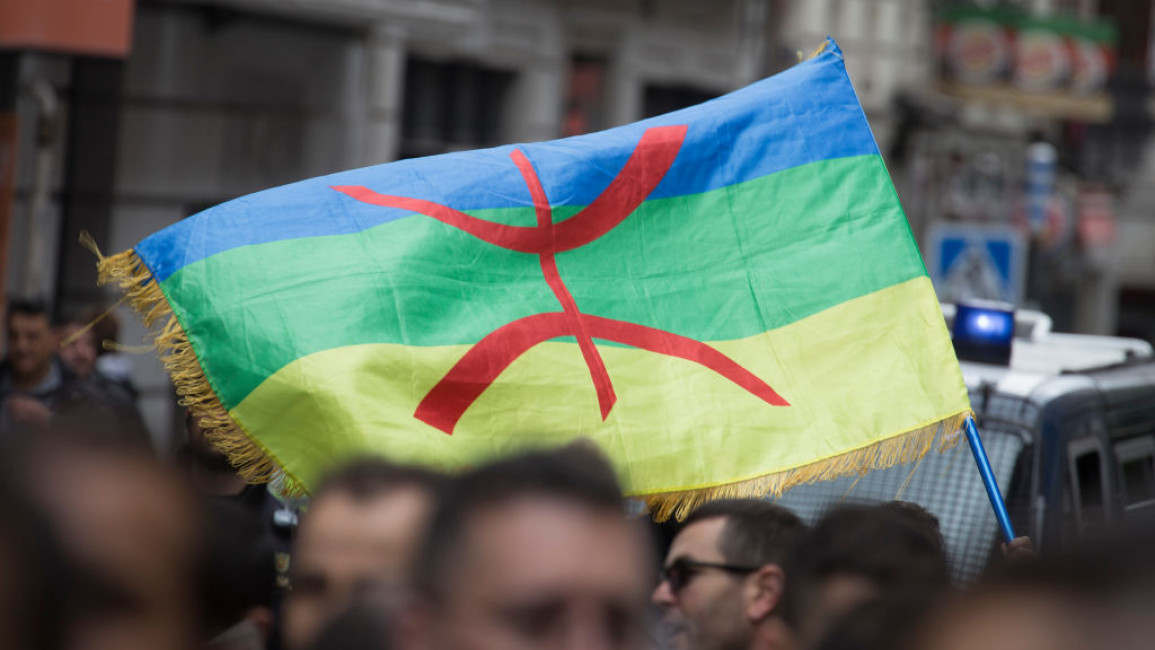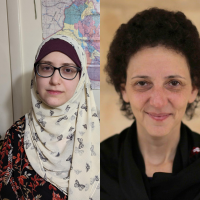
Riffians dare to remember their history 101 years on: Part 1
101 years ago, Mohamed Ben Abdelkrim Al-Khattabi –commonly referred to as Moulay Mohand, meaning the Prince Mohand in Tamazight – defeated the Spanish protectorate in the Moroccan Rif in what was dubbed as the Disaster of Annual(1921). Although this date would become the anniversary of the proclamation of the Republic of the Rif, the first independent state in North Africa, it has also become a symbol in the fight against colonisation and the oppression of indigenous peoples worldwide.
Today, it is not a national celebration, but a remembrance day that only Riffians mark behind closed doors. The consequences of not doing so have already been paid by figures like Nasser Zefzafi, who was imprisoned, and tortured for having led the Hirak in the region. His picture is now as vividly imprinted in people’s minds as that of Moulay Mohand’s.
Indeed, over 100 years later, the Rif is probably in a worse state for many, certainly unrecognisable for those with who hold the memory of its past close to them.
''Expressing pride for one’s history, especially one that has benefited oppressed people across the globe, is no longer allowed in the Rif. Even just remembering is forbidden.''
Cancer rates are the highest in the country, education for many is still a luxury, basic infrastructure and roads are lacking, as are sustainable jobs. In fact, several young people explained how,“with the Spanish we lived better, at least we had jobs”. This, coupled with state repression of the Amazigh Riffian culture and historical heritage; has practically pushed the region into exodus.
Lalla Fadila Al-Khattabi, granddaughter of Moulay Mohand’s brother Emir Mhamed Al-Khattabi, confessed that every time she has been able to return, she gets upset about“ what this region has become”.
It is difficult to comprehend how the Rif is in such a state following a history of struggle for liberation and prosperity led by Moulay Mohand.
Threatening empire
It is important to understand that there is a long history of Rif tribes being repressed. Riffian activist Massinissa Akandouch, who is also the great-great-grandson of Amghar Sidi Mohand Ameziane – one of the first anti-colonial Riffian leaders, explained: “Oppression existed way before. Throughout history we have always been very autonomous, allowing each tribe to have a designated territory and a designated leader chosen by people’s assemblies. I feel like that has been seen as a threat for many of these empires whose power relies on homogenising a territory’s organisation, religion, culture and language.”
He added: “sometimes the only solution that they [empires] have in order for the population to obey, is to erase everything we’ve ever known. Because the independence we have does not come out of thin air. We have learned it through our poetry, through our songs, through our clothing, through our pottery… all of that tells a story. Therefore, these empires find that the only way they can actually control us psychologically, politically and territorially is by actually erasing everything we have ever known, and creating a new narrative.”
Indeed, the creation of a new narrative that distorted the real aspirations of Riffian people is precisely what renowned Riffian historian Omar Lemallam speaks about. Lemallam’s association for the preservation of Riffian memory was blocked from establishing a museum of the Rif, because, “building a museum will be something dangerous, because to do it you have to uncover the true history. ‘They’ do not want that,” he explained.
“After independence, those who have ruled the state are not the ones who made an effort to liberate the country, ”he added, “so, they have written history in a way so that they show themselves as leaders and heroes, but that is not the real story.”
A universal fight against colonialism
The question is, what is the real narrative and was there a legitimate fear that the Rif would lead its own empire?
Akandouch summarised the reality: “The fact that the Rif has always had this independence, not necessarily politically in what we imagine as a nation, but merely in maintaining all these tribes to live independently in their own territories, with their own traditions, with their own language… that was already a threat. The fear was not that the Riffians were going to build an empire. The fear was about, ‘how do we control these people in a way that is going to benefit us?’”
The fight of Mohamed Ben Abdelkrim was therefore a fight for the liberation of oppressed people from colonial powers, and not a battle for the Rif alone – which many historians sight, said Professor Lemallam. In his declaration 101 years ago, the Professor points out, he never specified the borders of the new free territory. Even when he was forced into exile and separated from his land, he continued to fight against colonialism worldwide, welcoming leaders from Che Guevara to Ho Chi Min who wished to learn from the guerrilla tactics used in the Rif.
“These tactics that you might have read in history books about guerrillas in Vietnam or Cuba; they were all first used in the Rif during Abdelkrim’s battles,” recounted Akandouch proudly.
Forbidding memory
Expressing pride for one’s history, especially one that has benefited oppressed people across the globe, is no longer allowed in the Rif. Even just remembering is forbidden.
Professor Lemallam’s association headquarters was shut down by the state because dozens of historians and experts gathered to organise cultural and educational activities about the Rif.
“During the six months of the Hirak, we could feel that the activists and the leaders of the movement were drawing inspiration from history. In the chants, you could see the presence of Abdelkrim,” Lemallam explained.
The state perceived them to be the source of political education for the Hirak, that they equipped the movement with the tools to criticise and oppose the Moroccan government; which would explain the violence and criminalisation that followed.
Bianca Carrera is a freelance writer and analyst specialising in Middle Eastern and North African politics, as well as environmental matters, at Sciences Po Paris. She has written for Al Jazeera, Oxfam, elDiario.es, and others.
Join the conversation: @The_NewArab
Have questions or comments? Email us at: editorial-english@alaraby.co.uk
Opinions expressed in this article remain those of the author and do not necessarily represent those of The New Arab, its editorial board or staff.




